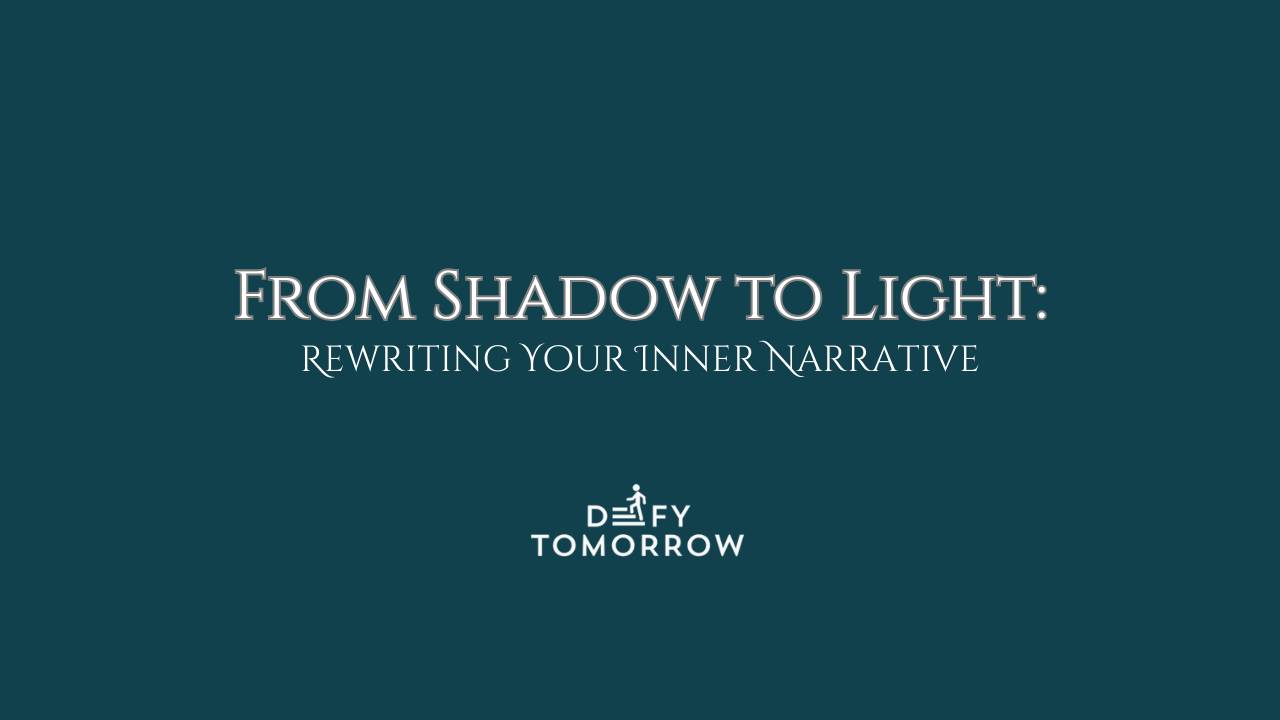Stuck Between Good Enough and Perfect: The Fight We’ve Already Won but Don’t Know It
Sep 08, 2024
Perfection as a Form of Self-Sabotage
At first glance, striving for perfection seems like a noble pursuit—something we’ve been conditioned to view as a sign of excellence, determination, or even moral superiority. But what if that pursuit is actually one of the most pervasive forms of self-sabotage? What if striving for perfection isn’t about self-improvement at all, but rather a way to run from the truth?
Striving as Running from the Truth
We’ve found ways to rebrand avoidance as ambition. We call it “chasing dreams” or “pushing harder,” but what if all that effort is simply running away? Away from what? From ourselves. From the truth that we’re already enough, just as we are. Striving often becomes a way to distract ourselves from the uncomfortable reality that we’re scared to stop and face what’s beneath the surface.
Avoidance of What?
We’ve all been there. The moment when we’re on the edge of settling into the peace of “enough,” but instead of embracing it, we shift our focus to the next impossible goal. Why? Because accepting that we are enough might mean facing the discomfort of being still. It might mean confronting the parts of ourselves we’ve avoided for so long—the parts that aren’t fixed by success, accolades, or external validation.
In a strange way, the pursuit of perfection is a distraction. If we’re always busy striving for something beyond reach, we don’t have to face the fear of what happens when we stop. We don’t have to confront the vulnerability of being fully seen or the possibility that what we already have might be taken away if we admit we’re content.
The Fear of “Enough”
There’s a paradox here. We say we want peace, fulfillment, and the ability to accept ourselves as we are. Yet, when we get close to those things, we turn away. The idea of “enough” is scarier than perfection because once you accept it, the striving stops—and with that comes the quiet. The quiet space where we have to sit with ourselves, no longer distracted by the chase.
But here’s the kicker: The fear isn’t just about being content. It’s about the fragility of contentment. If I say I’m enough, if I say life is enough, does that mean I have more to lose? And what if I’m wrong? What if this contentment is fleeting?
Perfection as a Barrier to Vulnerability
Perfectionism is a form of armor. It shields us from vulnerability. If we’re constantly striving, there’s always an excuse for why we can’t fully engage, why we can’t let someone in, or why we haven’t slowed down enough to savor the present moment. It gives us a reason to stay distant from our own lives, from our relationships, from the quiet truths about who we are.
Perfection allows us to keep people at arm’s length and protects us from the messiness of being human. If we can convince ourselves (and others) that we’re still working on “getting there,” we never have to admit that we’re afraid of what happens when we arrive.
But perfection is not a destination; it’s a never-ending road. And the more we walk it, the further we get from the things that truly matter.
Is Perfection Socially Acceptable Self-Sabotage?
What’s fascinating about perfectionism is how socially acceptable it is. It’s rewarded. People admire those who are “perfectionists” because they seem dedicated, tireless, always pushing the boundaries. But what if perfectionism is just a more socially acceptable form of self-sabotage? What if it’s just a way to keep us locked in a loop, never fully arriving, never fully satisfied?
Striving, in this sense, becomes a noble way to avoid the truth. We glorify the hustle, the grind, the relentless pursuit of more. But beneath that glorification lies a deep disconnection—from ourselves, from others, from the present moment. And in that disconnection, we lose sight of what’s truly meaningful. We lose the ability to enjoy what we’ve already created, to be fully present in our lives, and to recognize that we are enough, just as we are.



